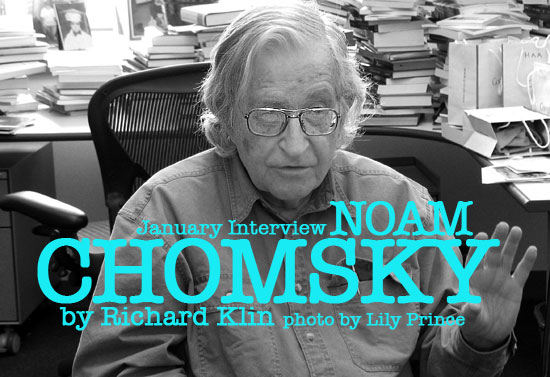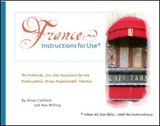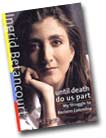Though
The Toronto Star recently described John McFetridge as Canada’s answer to Elmore Leonard, in some ways that doesn’t even begin to cover it. If anything, McFetridge’s voice is colder, starker than Leonard’s, something likely due the fact that this Made-in-Canad

a author wears his nationality like a Hudson’s Bay blanket. McFetridge is one of a new breed of Canadian crime fictionists, building neo noir that seems touched by both the humor and self-consciousness of life north of the 48th.
Publisher’s Weekly called McFetridge’s most recent book,
Everybody Knows this is Nowhere, a “noir love song to Toronto,” while in an early review for
Quill & Quire, Sarah Weinman also chose the Leonard comparison, saying that “both writers seamlessly mix the police procedural with perp procedural to underscore the parallel lives of members of the opposing teams. But where Leonard tends to favour Hollywood-homicide banter, McFetridge keep the quips to a minimum, preferring punch to panache. As a result, the only time his prose gets purple is when fists are flying.”
Clearly, and like a growing number of his readers, one gets the idea that Weinman understands that this is an author everyone knows is going somewhere.
 A Snapshot of John McFetridge
A Snapshot of John McFetridgeBorn: Greenfield Park, Quebec
Resides: Toronto
Birthday: November, 16 1959
Web site:
johnmcfetridge.caPlease tell us about Everybody Knows This Is Nowhere.The blurb is: an urban grow operator under house arrest must decide whether to trust a too-sexy stranger when a murder investigation threatens her business.
Which I guess sums it up, but it does start with an, “Arab-looking” guy falling 20 floors off the top of the apartment building she runs her grow op in, her 21-year-old daughter is in the mix, bikers are moving into town and going to war with the mob and the cops are in the middle of a huge corruption investigation, so there are some other complications.
What’s on your nightstand?The Big O by Declan Burke,
What Burns Within by
Sandra Ruttan and the non-fiction
McMafia: a Journey Through the Global Criminal Underworld by Misha Glenny.
What inspires you?Character, it’s all about the people. I spent a long time avoiding writing about people I knew, about their stories and situations, but the older I got the more I wondered, why? No one else seemed to be telling their stories, certainly not very many trying to do it in their voices (which is also my voice). So, I’m inspired by the people I’ve met, my friends.
What are you working on now?
More of the same, I guess. Another book with many of the same characters -- new main characters, though, that’s the series style I’m aiming for. Many of the same cops and the same crime figures involved in the lives of new people. I like the continuity of it, the way life goes on and the people keep doing what they’re doing, but I like new faces. In this book,
Go Round, an ex-US Army guy and an ex-Canadian Army guy who met in Afghanistan are back home and bringing drugs and guns with them. The Canadian guy is JT, a biker we meet in
Everybody Knows This Is Nowhere.
Tell us about your process.It’s changing. When I started writing novels my kids were very small. Jimmy was just over a year and Doug was two and a half. I was (and still am) a stay at home Dad. So, the boys and I would often go to the park in the morning and while pushing them on the swings or watching them in the sandbox, I’d work out stuff in my head and maybe make notes if I could find 30 seconds with a pen and piece of paper. Then, in the afternoon while they napped, I’d type up what I had on an old laptop at the kitchen table.
As the boys have gotten older, I’ve gotten more time. Now Doug is in grade four and Jimmy’s in grade two so I drop them off at school in the morning and work till lunch. Then, I am the mack daddy of grilled cheese and pizza pops. In the afternoon I do research, poke around

on line, get lost on blogs and webzines like this one and stuff till 3:30 and it’s time to pick up my boys at school. I’m looking forward to when they’re in high school and no longer come home for lunch (well, looking forward and not, at the same time).
As for the writing, I don’t work out plots or outline or plan too far ahead. My books aren’t mysteries with a crime being solved, they’re about ongoing crimes. I work from character and theme. Very basic themes. Dirty Sweet is about opportunity – how is it that some people see opportunity everywhere and some people never see it? Everybody Knows This Is Nowhere is all about how did I end up here? I get characters I’m interested in and then I put them in situations I think are interesting and I see what they do. Then I see what they do next and around about page 250 I start to wonder, wow, how are they going to get out of this (or not get out of it)?
Francis Ford Coppola said that the idea is the question and making the movie is how you try and find the answer. Then he added, “Just try telling that to the money guy.” It’s a funny line when you’re talking about movie money, but I find it actually works with books. The idea is the question and writing the book is finding out some of the answers. I don’t know what the answers will

be ahead of time, I have to write the book to find out.
Lift your head and look around. What do you see?One one side is my kitchen and living room, my dog is sleeping on the couch (hey, get off the couch!) and on the other side is the window to my front yard and the street. I really like to feel plugged into my neighbourhood, to my city. I don’t work well in solitude (well, I say that having lived in cities my whole life so I don’t really know, but I strongly suspect...). I’m a couple blocks from the library and the grocery store and the park so I walk everywhere. It’s a nice neighbourhood, very homey and like a small town in the middle of a big city. I know many of my neighbours and I like running into people when I’m out.
When did you know you wanted to be a writer?When I read Elmore Leonard’s
Swag? I don’t know. I wasn’t much of a reader when I was a kid, but I loved the movies. I moved around a lot in high school (I went to four of them) and at the last one I met a guy I’m still friends with named
Randy McIlwaine (he’s now a cartoonist, very funny stuff). We went to lots of movies and decided to try and write one. We called it
Opening Night at the Bijoux (we were in Montreal, see, and bijoux means jewelry in French, and we thought we were so clever, we imagined it as the sign outside an adult movie theatre, the Bijou X) and we still feel we pretty much invented the high school sex comedy. It pre-dated
Animal House and
Meatballs and Porkys.
Anyway, we showed it to some producers in Montreal and a couple were interested and it was fun (and extremely frustrating), but it never went anywhere. Anyway, I thought I could make movies. For twenty years I tried -- not always full-time, head on trying, but on and off.
After a while I realized all the movies I really liked were either made by
John Sayles or based on a book. I was intimidated by the idea of trying to write a novel -- every novelist I ever heard talk was well-educated, well traveled, confident. Then another buddy of mine from my high school years, Michel Basilieres, convinced me most novelists were just faking it, so I gave it a try. Michel is also a writer, his novel
Black Bird won the Amazon.ca/Books in Canada Best First Novel Award a few years ago.
If you couldn’t write books, what would you be doing?I don’t know. Not much. Maybe I’d be a dog walker. I drifted aimlessly through a lot of my life. Dropped out of high school, moved out west, worked on construction sites and in warehouses, went back east, enrolled in university as a “mature” student and changed majors a few times before landing in English lit and history, dropped out and got kicked out a couple times before graduating at age 31. I thought I might be a teacher but after a dozen teacher’s colleges turned me down I got the hint. I didn’t have good enough marks to get into a master’s program. And like I said, my 20 year attempt at filmmaking was a complete bust.
My brother just retired after 39 years as an RCMP officer and sometimes I think I should have done that.
To date, what moment in your career has made you happiest?It’s all been pretty good. I co-wrote a book of short stories,
Below the Line, with my friend Scott Albert and getting that published was great. Then, when Jack David at ECW accepted
Dirty Sweet and asked me if I could write some more books, that was pretty good. Working with Jack and Michael Holmes and everybody at ECW has been terrific. Being able to dedicate books to my wife after all she’s put up with is pretty sweet, too, and makes me very happy. I was very surprised when
Dirty Sweet and
Everybody Knows This Is Nowhere got picked up by Harcourt in the US, and pretty happy about it.
For you, what is the easiest thing about being writer?Because I write crime fiction maybe the easiest is that the world keeps giving me material. Every time I open the paper some criminal has done some wacky, dumb thing and I just try and imagine what could have possibly led up to that and I have a scene.
Writing crime fiction is also a good way to deal with the huge amounts of hypocrisy I see every day. I write a scene in which a bunch of bikers talk about how they’d be out of business if marijuana was legalized and I feel like I’ve done some social commentary and maybe been a little entertaining at the same time.
What’s the most difficult?Working alone all the time. One of the things that kept me trying to make movies all those years was the social aspect of it, the hanging out on set with a bunch of funny people doing something they liked (I always felt almost all that on set bitching was fake). I know writers are supposed to love the solitude, the quiet contemplation and all that, but it drives me crazy.
What question do you get asked about your writing most often?Oh, the usual, where do the ideas come from. That way I know the person asking isn’t from Toronto or they’d recognize almost every crime in my books from stories in the newspaper.
What’s the question you’d like to be asked?Not this one, that’s for sure ;) I don’t know, I’m pretty open about trying to answer whatever people ask.
What question would like never to be asked again?I was confronted after a reading once by a very angry guy demanding to know why I would put young black men committing crimes in my book. I don’t actually mind the question, I think it’s good to start the dialogue and I think we avoid difficult questions too much in Canada, but he was a pretty scary guy and he kept shoving me and saying it was, “at your peril” (he had an odd accent and the phrase seemed to fit him). We talked for a while. I don’t think he ever agreed with me that we need to get this stuff -- racism, crime, sexism, inequality -- out in the open, we need to talk about it even if it makes us uncomfortable (or because it makes us uncomfortable) if we’re going to see the end of it, but at least we didn’t come to blows.
Tell us something about yourself that no one knows.
For most of my life I wanted to play goalie for the
Montreal Canadiens. When I was a kid I was such a bad hockey player I was too embarrassed to tell my friends. Now I want to play soccer for
Toronto FC.
Labels: Author Snapshot, crime fiction, interview
 n Love with a Horse (And What Happened Next) (Spring Harbor Press) is a very different kind of book:
n Love with a Horse (And What Happened Next) (Spring Harbor Press) is a very different kind of book:



















